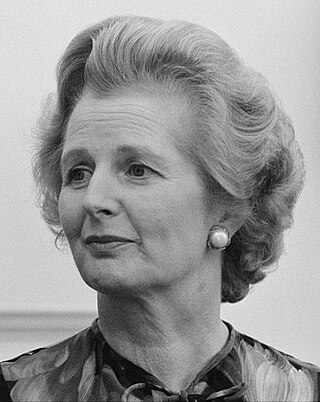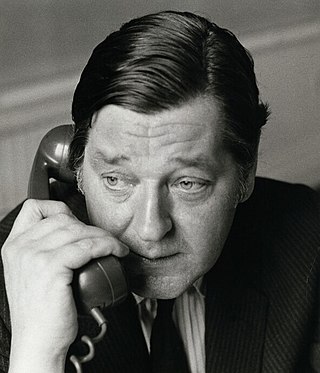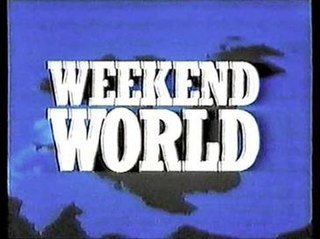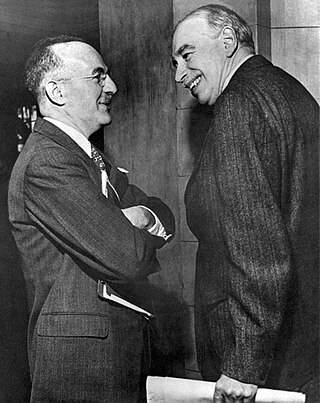
Milton Friedman was an American economist and statistician who received the 1976 Nobel Memorial Prize in Economic Sciences for his research on consumption analysis, monetary history and theory and the complexity of stabilization policy. With George Stigler, Friedman was among the intellectual leaders of the Chicago school of economics, a neoclassical school of economic thought associated with the work of the faculty at the University of Chicago that rejected Keynesianism in favor of monetarism until the mid-1970s, when it turned to new classical macroeconomics heavily based on the concept of rational expectations. Several students, young professors and academics who were recruited or mentored by Friedman at Chicago went on to become leading economists, including Gary Becker, Robert Fogel, Thomas Sowell and Robert Lucas Jr.

John Maynard Keynes, 1st Baron Keynes was an English economist and philosopher whose ideas fundamentally changed the theory and practice of macroeconomics and the economic policies of governments. Originally trained in mathematics, he built on and greatly refined earlier work on the causes of business cycles. One of the most influential economists of the 20th century, he produced writings that are the basis for the school of thought known as Keynesian economics, and its various offshoots. His ideas, reformulated as New Keynesianism, are fundamental to mainstream macroeconomics. He is known as the "father of macroeconomics".

Monetarism is a school of thought in monetary economics that emphasizes the role of policy-makers in controlling the amount of money in circulation. It gained prominence in the 1970s, but was mostly abandoned as a practical guidance to monetary policy during the following decade because the strategy was found to not work very well in practice.

Leonard James Callaghan, Baron Callaghan of Cardiff,, commonly known as Jim Callaghan, was a British politician who served as Prime Minister of the United Kingdom from 1976 to 1979 and Leader of the Labour Party from 1976 to 1980. Callaghan is the only person to have held all four Great Offices of State, having served as Chancellor of the Exchequer from 1964 to 1967, Home Secretary from 1967 to 1970 and Foreign Secretary from 1974 to 1976. He was a Member of Parliament (MP) from 1945 to 1987.

The 1979 United Kingdom general election was held on Thursday 3 May 1979 to elect 635 members to the House of Commons.

Nicholas Kaldor, Baron Kaldor, born Káldor Miklós, was a Cambridge economist in the post-war period. He developed the "compensation" criteria called Kaldor–Hicks efficiency for welfare comparisons (1939), derived the cobweb model, and argued for certain regularities observable in economic growth, which are called Kaldor's growth laws. Kaldor worked alongside Gunnar Myrdal to develop the key concept Circular Cumulative Causation, a multicausal approach where the core variables and their linkages are delineated. Both Myrdal and Kaldor examine circular relationships, where the interdependencies between factors are relatively strong, and where variables interlink in the determination of major processes. Gunnar Myrdal got the concept from Knut Wicksell and developed it alongside Nicholas Kaldor when they worked together at the United Nations Economic Commission for Europe. Myrdal concentrated on the social provisioning aspect of development, while Kaldor concentrated on demand-supply relationships to the manufacturing sector. Kaldor also coined the term "convenience yield" related to commodity markets and the so-called theory of storage, which was initially developed by Holbrook Working.

Charles Anthony Raven Crosland was a British Labour Party politician and author. A social democrat on the right wing of the Labour Party, he was a prominent socialist intellectual. His influential book The Future of Socialism (1956) argued against many Marxist notions and the traditional Labour Party doctrine that expanding public ownership was essential to make socialism work, arguing instead for prioritising the end of poverty and improving public services. He offered positive alternatives to both the right wing and left wing of the Labour Party.
The Chicago school of economics is a neoclassical school of economic thought associated with the work of the faculty at the University of Chicago, some of whom have constructed and popularized its principles. Milton Friedman, Thomas Sowell, and George Stigler are considered the leading scholars of the Chicago school.

Douglas Patrick Thomas Jay, Baron Jay, PC was a British Labour Party politician.
The post-war consensus, sometimes called the post-war compromise, was the economic order and social model of which the major political parties in post-war Britain shared a consensus supporting view, from the end of World War II in 1945 to the late-1970s. It ended during the governance of Conservative Party leader Margaret Thatcher. The consensus tolerated or encouraged nationalisation, strong trade unions, heavy regulation, high taxes, and an extensive welfare state.

Ralph Harris, Baron Harris of High Cross was a British economist. He was head of the Institute of Economic Affairs from 1957 to 1988.

Weekend World is a British television political series, made by London Weekend Television (LWT) and broadcast from 1972 to 1988.
"We are all Keynesians now" is a famous phrase attributed to Milton Friedman and later rephrased by U.S. president Richard Nixon. It is popularly associated with the reluctant embrace in a time of financial crisis of Keynesian economics, for example, fiscal stimulus, by individuals such as Nixon who had formerly favored less interventionist policies. The phrase "we are all ... now" has become a formula applied to various other concepts since.
In macroeconomics, particularly in the history of economic thought, the Treasury view is the assertion that fiscal policy has no effect on the total amount of economic activity and unemployment, even during times of economic recession. This view was most famously advanced in the 1930s by the staff of the British Chancellor of the Exchequer. The position can be characterized as:
Any increase in government spending necessarily crowds out an equal amount of private spending or investment, and thus has no net impact on economic activity.

Frank Horace Hahn FBA was a British economist whose work focused on general equilibrium theory, monetary theory, Keynesian economics and critique of monetarism. A famous problem of economic theory, the conditions under which money, which is intrinsically worthless, can have a positive value in a general equilibrium, is called "Hahn's problem" after him. One of Hahn's main abiding concerns was the understanding of Keynesian (Non-Walrasian) outcomes in general equilibrium situations.

The post-war displacement of Keynesianism was a series of events which from mostly unobserved beginnings in the late 1940s, had by the early 1980s led to the replacement of Keynesian economics as the leading theoretical influence on economic life in the developed world. Similarly, the allied discipline known as development economics was largely displaced as the guiding influence on economic policies adopted by developing nations.
Throughout modern history, a variety of perspectives on capitalism have evolved based on different schools of thought.
Benjamin A. Rogge was an American economist, college administrator, and libertarian writer, speaker and foundation advisor. Rogge received an A.B. degree from Hastings College and an M.A. from the University of Nebraska–Lincoln. Rogge received his PhD in economics from Northwestern. At Wabash College, Rogge taught in the summer Institute for Professional Development, in addition to his usual teaching in economics. Rogge co-authored an economics principles textbook with John Van Sickle. One strength of the text is the account that it gives of Joseph Schumpeter's process of creative destruction. Rogge helped organize a series of lectures by Milton Friedman at Wabash that were eventually developed into Friedman's Capitalism and Freedom book. Much later, Rogge participated in a brainstorming session for Friedman's Free to Choose television series. Liberty Fund was founded with money from Pierre Goodrich, who sought advice from Rogge during the Fund's early years. Rogge served for many years as a Liberty Fund trustee. Thomas Sowell gives Rogge credit for encouraging him to write a book on economics and race. Rogge also was a frequent presenter at the seminars of the Foundation for Economic Education (FEE). FEE's founder, Leonard Read, thought of Rogge as Read's eventual successor, an outcome prevented by Read outliving Rogge. An extended video clip of a Rogge FEE lecture on "Competition and Monopoly" on YouTube illustrates the dry wit that made him a popular speaker. Rogge attended 13 meetings of the influential international Mont Pelerin Society. Rogge helped produce, and narrated, a documentary on Adam Smith that was funded by Liberty Fund. Rogge wrote the introduction to a collection of quotations from Adam Smith. A collection of Rogge's speeches, often on topics in economics or education, was published under the title Can Capitalism Survive? Wabash College, where he taught for many years, established a speaker series in his honor. Rogge's archives are mainly housed at the Hoover Institute on the campus of Stanford University. A posthumous collection of Rogge's speeches and essays has appeared under the title A Maverick's Defense of Freedom.
The Faculty of Economics is one of the constituent departments of the University of Cambridge. It is composed of five research groups, in macroeconomics, microeconomic theory, economic history, econometrics, and empirical microeconomics. It is located in the Sidgwick Site in Cambridge, has been host to many distinguished economists, and is regarded as the birthplace of macroeconomics. 19 students or members of the faculty have won the Nobel Memorial Prize in Economic Sciences.

Masters of the Universe: Hayek, Friedman, and the Birth of Neoliberal Politics is a 2012 book by barrister Daniel Stedman Jones, in which the author traces the intellectual development and political rise of neoliberalism in the United States and the United Kingdom. Originally a PhD thesis, the author adapted it into a book.













